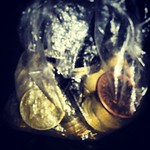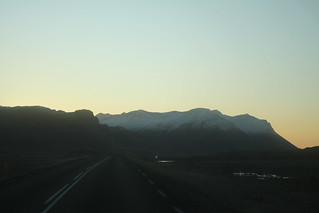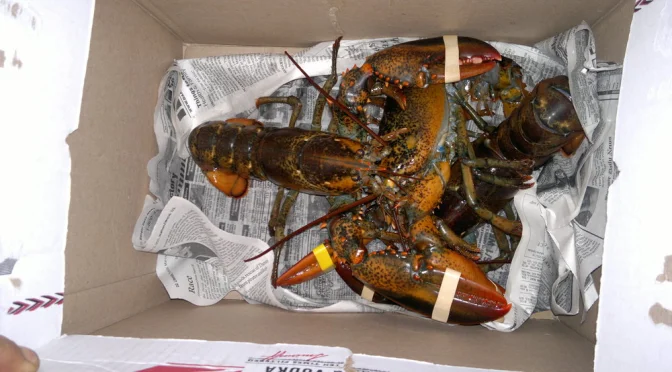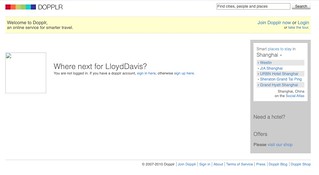I saw a demo of a new platform called “metalabel” on Monday. I was excited by what I saw.
?
I saw a solution to a problem that we’ve chatted about for the last 15 years or so, a problem that’s easy enough to understand at a simple level, but once you get to the levels of complexity that make it interesting enough to pursue, it seems just too hard to bother with. Or at least that was my experience.
The problem, as I would state it is: how can members of a community release a series of collaborative works and share any commercial gains according to pre-arranged splits without either bleeding money away in financial transaction fees, paying lawyers for creating, interpreting and enforcing contracts or creating a managerial class within the community whose only function is to make the whole machine work (and to take a slice for themselves)?
See, when I started writing that sentence, I thought it was going to be much simpler than it turned out. And that’s what happens with these projects too.
The promise of metalabel is that you can create a series of works with (or without) splits that can evolve over time and the platform does all the work for you. Your community (or group of pals or whatever) becomes a “meta label” that can release all sorts of different creative works.
The proof of the meta-pudding will be in the meta-eating of course, and it’s invitation-only for the time being, but that’s what I took away from seeing it shown off by founder, Yancey Strickler. I’ve been fortunate enough to get pulled into the artist collective known as Hard Art. Hard Art is still being a bit mysterious ahead of “The Fete of Britain” event in a couple of weeks at the Factory International’s Aviva Studios in Manchester (a venue takeover that I’ve been likening to 2013’s “Hack The Barbican” except in the service of making a cultural response to Climate Crisis and the rest of the shitshow we’re experiencing these days). But this metalabel “release” gives you some hints and more will be revealed as the event approaches.
The best social art and community building that I’ve made has resulted in bunches of people who get inspired and trust each other enough to undertake projects – what people quickly notice is that these situations “have great potential” – the realisation of that potential though can be patchy – and while some projects find their feet (and their revenue stream!), lots of them fizzle out, often because the people are already busy and because things just get hard very quickly.
Some examples from my glorious past to help me think this through:
Tuttle Club
As well as having fun, learning lots about the social media scene at the time and inspiring a ton of blog posts, vlogs and podcasts, the people who came to Tuttle, especially in the early days, also ended up getting a new job or starting a business or some other project that ended up being their job. We (I) struggled for a long time with how to make it work financially for myself, given that most of those opportunities were being created while I was giving a friendly greeting to a newbie and I didn’t want to take the “easy” route of selling out or being responsible to a funder for (in)consistent results. Many times it was suggested that if people made stuff there that generated revenue, that a percentage could go into a central pot to support group expenses and me. But as I say, things get pretty complex, pretty quickly and it turned out that this was the kind of “why can’t you just” suggestion that I couldn’t implement (especially back in 2008/9). Even when we did Tuttle Consulting the headaches were in the various informal contractual arrangements and the difficulty of paying for non-billable work.
Centre For Creative Collaboration
One of the ways I did manage to turn the Tuttle conundrum round for myself for a while was by working with Brian when he (and his partners) created C4CC for the University of London in 2010. As Social Artist in Residence though, there was enough to do in curating the social space and relationships in the building. I probably clung onto it a bit long as a source of small but stable income. The question of how to fund and run such a space was, in the end, the thing that killed it off. And this wasn’t for want of trying – very talented people with big brains were grasping for a way to balance revenue and costs without relying on a big (and fickle) sponsor – a way that projects could contribute to the financial well-being of the space and the management overhead, when they mostly in start-up mode themselves.
We Will Gather
We had funding for this platform for a year in 2012/13. That paid us some salary/fees but mostly went on developing and hosting the tech – you could initiate up a “good” thing in your neighbourhood with it’s own web page, just by tweeting and using the hashtag #wewillgather. And lots of good things happened, but it didn’t reach a critical mass partly because of the Twitter API fuckery, but also because it needed some income and some curation/promotion/community building work that we just couldn’t maintain for free.
Workshop34 and other empty shops
These projects were shops! They’re actual retail premises where people are used to going in and spending money – what could possibly go wrong?! Dan and I only had 6 months in Workshop34 in Sittingbourne in 2014/15 but we established a way for the local community, especially local artists to show and sell their work and reap the benefits of working with other people, gaining confidence to keep trying other projects after our EU-funding had dried up. And we did deals with everyone that usually amounted to a 10-15% commission on any revenue they took. This would go into a pot for tea, biscuits and other expenses I incurred. But nobody wanted the hassle of earning money there – whether they were people who might risk their means-tested benefits or people who just didn’t want the responsibility of holding cash for a loosely-organised community. And nobody wanted to manage it afterwards – one of the hardest bits of the work for me was finding someone who’d take the £300 that was left in the community pot at the end.
In all of these situations, the primary purpose (and survival) of the group was ultimately undermined by the difficulty of paying for overheads or organising collaborative work once money was involved.
In each case, people (including me) could see that we were creating something of value. That as collaborative communities, the value had the potential to be realised by making creative assets – learnings, souvenirs, joint celebrations etc. and use the network effect of our joint social capital to promote and sell them. But it was always just too hard. We always ran out of juice (physically, emotionally and financially) before we could get it going. And I started to believe that the common denominator in all this was me and that it was my fault that it never worked, so I stopped trying.
I had a flicker of hope for this situation, when Imogen Heap asked me to help facilitate conversations about her Mycelia for Music idea and I got to see that this problem wasn’t just about me, my collaborators and the communities that we worked in – it was also there in the messy way music gets made. And at the time (end of 2015) it looked like crypto was the way to do this – distributed ledger so that nobody can tinker with the splits or metadata and nobody has to run it, the fees are all included in the blockchain etc. etc. You remember 2015? Yeah, good times!
Metalabel brings me renewed hope. I got it as soon as I heard Yancey say that one of the inspirations was the foundation of the Royal Society – people getting together in pubs and coffee shops and then publishing their work and incidentally creating a whole new method for creating and testing and disseminating knowledge? Well I can’t claim the whole new method thing, but it does sound familiar, doesn’t it?
In a nutshell, it’s a bit of infrastructure for individuals or collectives to release work for digital or physical distribution and, if there’s money involved, a way to set up how the money gets distributed between the people who did the work (and a commission for the platform) – so you can publish a book/EP/film/artwork and have a set of splits that operate while the initial costs are recouped and then a new set of splits thereafter or whatever you and your community want to do.
The difficult bit is still pull together a group of people who want to make cool innovative stuff and won’t kill each other in the process of deciding what gets published and who gets paid. But y’know, that seems a lot more fun when you’ve got a platform to do it on.
PS this is based on a privileged (and otherwise uninformed) sneak peek behind the scenes. I might have got the wrong end of the stick on something. If you go to metalabel.com right now, the concept may or may not jump off the page at you, but I believe the first curated releases (it’s invitation-only for the time being) will be available soon and then it will be a lot clearer.










